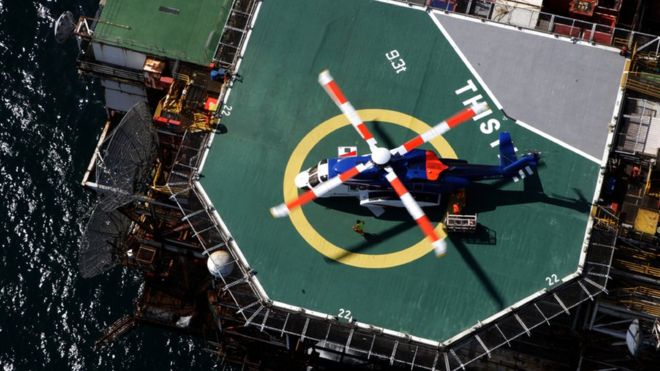
The dust might be starting to settle on some issues around Covid-19, but the impact it may have on North Sea decommissioning is very much up in the air.
Operators have failed to reach a consensus but, if anything, work will likely be pushed back rather than accelerated, according to Oil and Gas UK’s (OGUK’s) decommissioning manager, Joe Leask.
“There’s been a deferral of activity as these operators look to rationalise their expenditure in all areas of the business,” he said.
“Decommissioning is obviously included in that, so in the short term I don’t see a rush to decommission. I actually see the opposite.”
The environment has been “very reactive” in recent weeks, according to Leask, with the industry rightly focused on the immediate issues of reducing offshore manning levels and securing testing for workers.
Time needs to be spent assessing the longer-term impact on the UK North Sea, including the costly business of removing certain
assets.
Leask has had talks with as many as 27 operators on the issue but there is a clear division of opinion.
He said: “There’s no real consensus. There’s not a ‘there’s no decommissioning going to happen’ and there’s not a ‘there’s loads of decommissioning that’s going to happen’.
“There’s a bit of difference in opinion over the wide range of various operators that we have in this day and age in the North Sea.”
Speaking during the week when Brent reached a 20-year low of around $16 a barrel, Leask said the industry was already in “unprecedented times”.
As the oil price tumbles, the margin for older and more expensive fields to become profitable shrinks.
Although, at the time of writing, Brent has recovered to just over $20, a sustained drop in oil price may well come to bear on North Sea assets, Leask conceded.
(Note: Brent Crude has since rallied to around $30 – see here for more.)
He said: “Over a prolonged period you’ve got a select few assets that don’t wash their face and have to be reassessed.
“Companies will have a balancing act to play in really analysing the economics of those fields over the next year and keeping a close eye on what the oil price does.”
Leask said that over the next two to three months OGUK will be “looking to take stock” and understand the expenditure and activity sentiment for the sector. The organisation also has its Decommissioning Insight Report due in November.
For now, it appears that assets on the brink are particularly at risk, with EnQuest deciding to pull the plug on the Heather and Thistle platforms, which already had operational issues but were planned to be restarted.
However, Romana Adamcikova, senior analyst at Wood Mackenzie, thinks those would be the exception to the rule, as they were subject to “a sequence of actions that were probably not particularly linked to the oil price crash”.
More generally, even for a respected consultancy like Woodmac, it is difficult to understand the full impact of the oil crash on the decommissioning market.
She said: “Even though we’re seeing more apocalyptic predictions, I would use 2015 as a comparison.
“We didn’t see an acceleration in decommissioning with the oil price crash then. The novelty this time around is there’s not much oil companies can do to make production more profitable.
“It’s up in the air and it’s difficult even for us to predict and figure out what is going to happen with decommissioning.”
In February, Woodmac published research predicting decommissioning spending would overtake capex in the North Sea by 2025, although that may change with the current landscape.
It also highlighted that the UK’s total decommissioning bill will hit £17 billion by 2029 – twice that of any other country.
Adamcikova added: “I think the decommissioning question is more about if it comes then fine, but where is the government going to find the money?”
With the UK Government set to foot a portion of that cost, it could be another factor leading to deferral as decommissioning costs can be deducted via tax relief.
A 2018 report by the National Audit Office estimated the UK Government’s bill for decommissioning tax reliefs would hit £24bn, although the industry has a shared goal of significantly lightening the burden.
Adamcikova believes firms with upcoming cessation of production dates like Taqa, CNR and Repsol Sinopec Resources UK, will have a “fairly good view” of their costs and work needed.
However, there remains a question over who can execute it as the supply chain has been squeezed tightly, project work due in the summer has been deferred and there are numerous warnings of companies becoming insolvent.
The industry is therefore looking at how it can “stimulate activity in all areas”, including decommissioning, according to Leask.
In March 2019 the UK Government launched a call for evidence on the decommissioning sector and how to position the country to benefit from this industry, worth an estimated £80bn globally over the next decade.
A year on from OGUK’s response on behalf of the sector, last May, there hasn’t been any word from government on the next steps.
Now, in the current economic crisis, that may be even further away given “every man and his dog around the country is going to be looking for ways that the government can aid their industry”.
However, Leask hopes for some word soon. He said: “Stimulating activity is really important to keep our supply chain active at this time.
“We’ve heard conversationally that the response from government has been developed but there has been a lot of activity in terms of the general election, Brexit, and now the Covid-19 response.
“So, I can understand that they’ve not had time to distribute or announce anything in that space but the industry responded to that in May 2019 and we are waiting to hear back.
“As we try to stimulate that activity, I think that decommissioning is a space with government interest from that call for evidence, it would be interesting to understand what that response is.”



